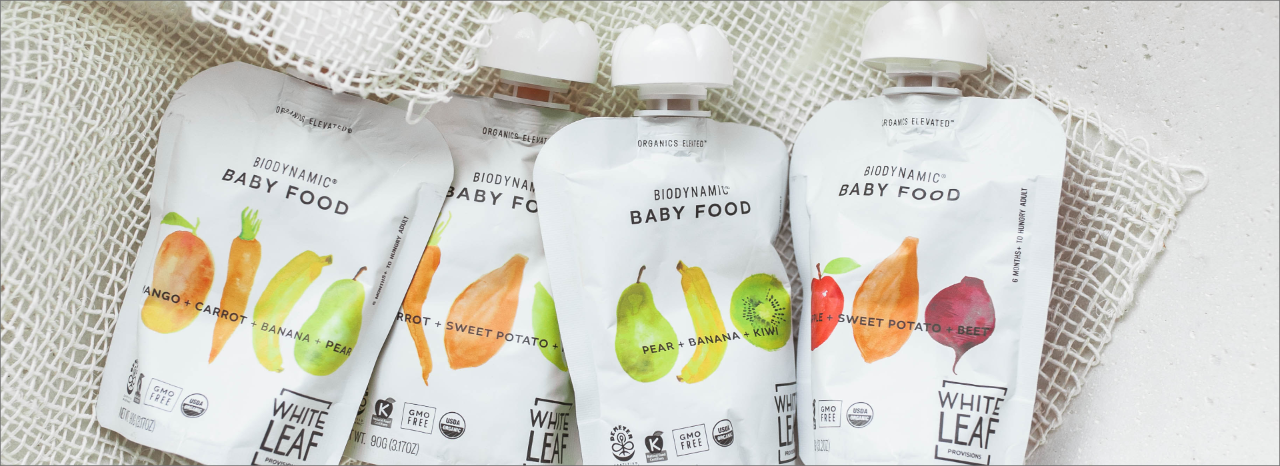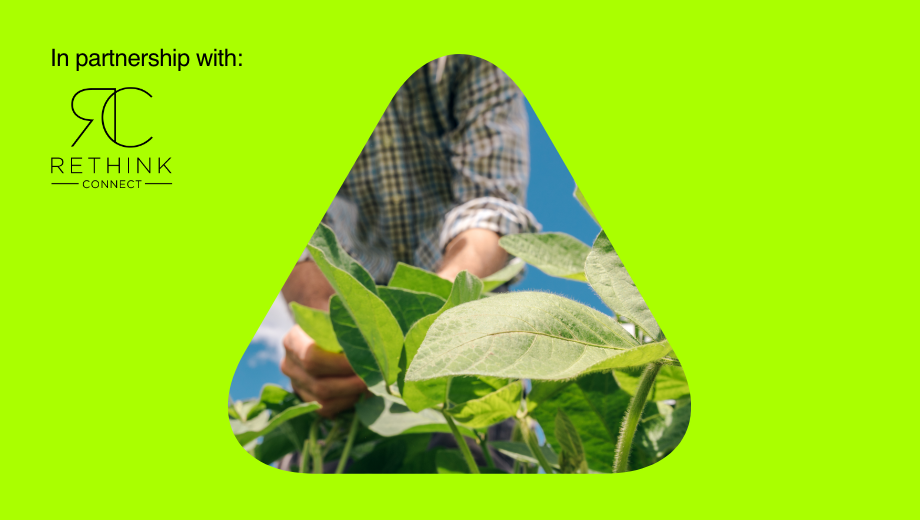Now small, independent brands are also making their agricultural practices a key claim on their packaging. Alpha Food Labs, a start-up that creates new sustainable food products, is developing its first brand, Varietal, a snack line based on the notion of crop rotation – a crucial principle of regenerative farming. Its first snacks will be Crop Crackers, featuring ingredients that are grown in ways that ‘support biodiversity [and] healthier soils’. Each year, with a different crop rotation, a new product will come out, giving farmers an incentive to plant cover crops that make for healthier soil.
Baby food brand White Leaf Provisions offers puréed food pouches containing ingredients produced using biodynamic farming (a form of regenerative agriculture) that are certified 100% biodynamic. ‘I didn’t see anything in the baby food aisle that had that level of transparency,’ co-founder Keith Rowe told Food Navigator. ‘There’s a lot of organic and GMO-free, but I didn’t see any products focused on farming and farming practice. We’re feeding kids all these fantastic products but the majority of farming behind the product is actually destroying the planet they are going to inherit.’ The marketing for White Leaf’s products directly connects the ingredients with soil health, with the tagline Healthy Soil, Healthy Food. Similarly, organically farmed wine brand Bonterra aims to educate its customers on how its biodynamic farming practices produce not only better wine, but also better soil. In 2019 it announced the results of a year-long soil study that examined how Bonterra’s viticulture practices affected the vineyard’s soil. The brand then produced a short marketing film to share the results with its customers.
At present, no single certification indicates a food has been produced using regenerative agriculture methods. In the US, there is The Savory Institute’s EOV (Ecological Outcome Verification) seal, which tracks the outcome on soil health and biodiversity of a farm’s practices. The Regenerative Organic Alliance, a non-profit-making group led by the non-profit Rodale Institute and brands Patagonia and Dr Bronner’s, has also launched the Regenerative Organic Certified label, which aims to be ‘one standard to rule them all’ and requires farms to follow the main principles of regenerative agriculture. The seal is intended to move beyond organic to designate food that is not only good for people, but good for the planet as well. But, like all certification labels, there could be confusion when there are too many different labels and a strong consumer awareness campaign will be necessary.





